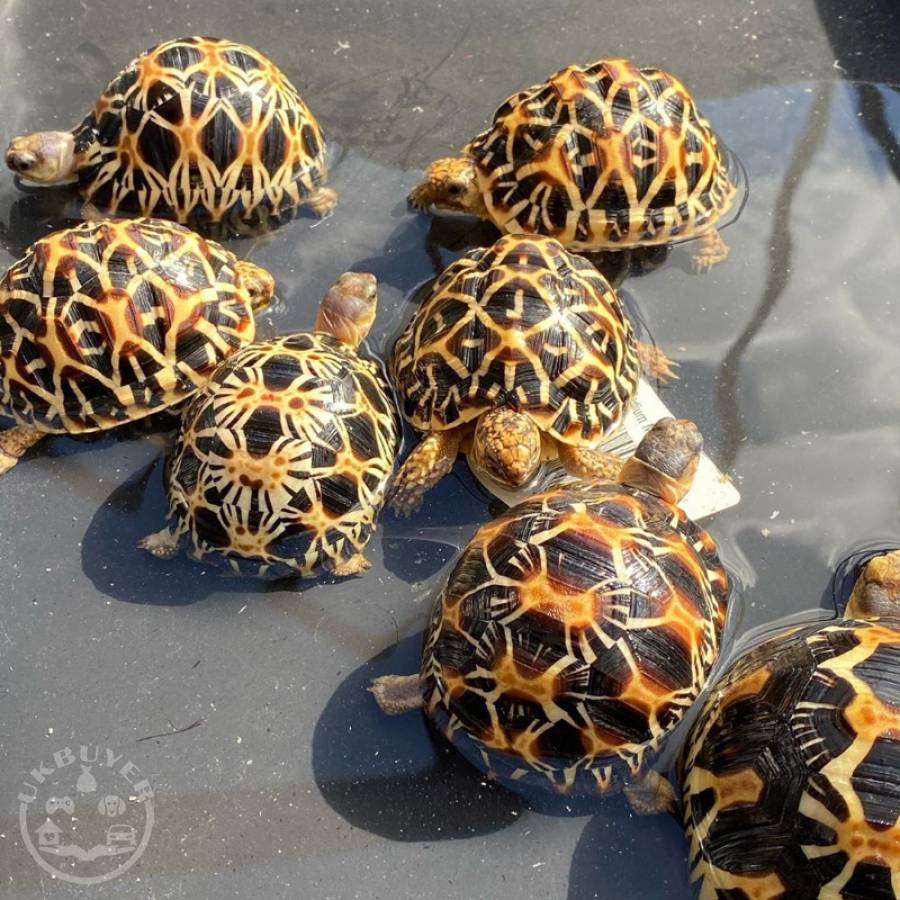
Find Animals
Lucy’s Law
The introduction of ‘Lucy’s Law’ means that anyone wanting to get a new puppy or kitten in England must now buy direct from a breeder, or consider adopting from a rescue centre instead.
Please read more about ''Lucy’s Law'' here.
Description
Whatsapp +44 7448 318481
Radiated tortoises are one of the most stunning tortoises on earth, jaw droppers to anyone that sees them. They are very round in shape and very high domed; we often refer to them as our “bowling balls.” Jet black shells with crisp yellow and white bands radiating from the center of the scutes give them a pattern similar to a star tortoise, but with much more variation and a cleaner, crisper contrast. Head, leg and skin color is bright yellow often with a black patch on the top of the head. The face is blunt and round.
Whatsapp +44 7448 318481
Habitat: Radiated tortoises come from the dry thorny forests of the Southern tip of Madagascar. They enjoy humidity and warm conditions, and as adults, do well in hot, dry climates with or without humidity. We raise them with high humidity the first 2-3 years and lots of soakings / hydration to ensure they remain as “smooth-shelled” as possible.
Diet: This tortoise is naturally a browser, eating broadleaf weeds and low leaves from bushes and shrubs. They will also graze on grass, and have an easy diet to provide in captivity. They enjoy Mazuri tortoise diet as well as spring mix, diced cactus and any combination of vegetables. Fruit is occasionally added as a treat, but should remain a small percentage of the diet.
Adult Behavior: Radiated tortoises are active, busy tortoises when the temperatures are in their ideal ranges (60-90 degrees), particularly if humidity is moderate to high. During hot, dry conditions, our radiateds will generally stay hidden in shallow underground hideboxes, but a good soaking with the hose (or rain, when we get it) and they’re running around happily. They can usually can be kept in small groups without any major aggression problems. Most will eagerly come to their keepers looking for food once they are comfortable in their environments. Ours have generally made little attempts to escape or dig out of their enclosures, so a pretty basic perimeter wall should contain them.


